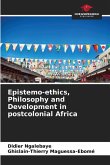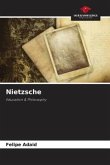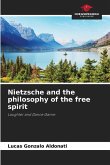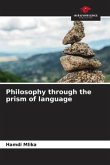The aim of these studies is to put Nietzsche's understanding of language into perspective by analysing the expression "Thus Spoke", taken from the title of his work "Thus Spoke Zarathustra", in order to bring to light the outlines of Nietzsche's writing of orality: how does Nietzsche use writing as a resonance point for oral discourse? Nietzsche's text is a sub-graph of Zarathustra's speech. A text of this kind calls on the reader by assigning him the posture of a listener. The reader is called upon to read Nietzsche's text by listening to Zarathustra (Ainsi parlait), to read with the ear and eye. Applied to philosophy in Africa, these remarks open up new avenues of research. They make it possible to bring into existence an African philosophy of orality, to bring to the visibility of the text rationalities based on orality, to attempt a philosophy of the oral tradition.








